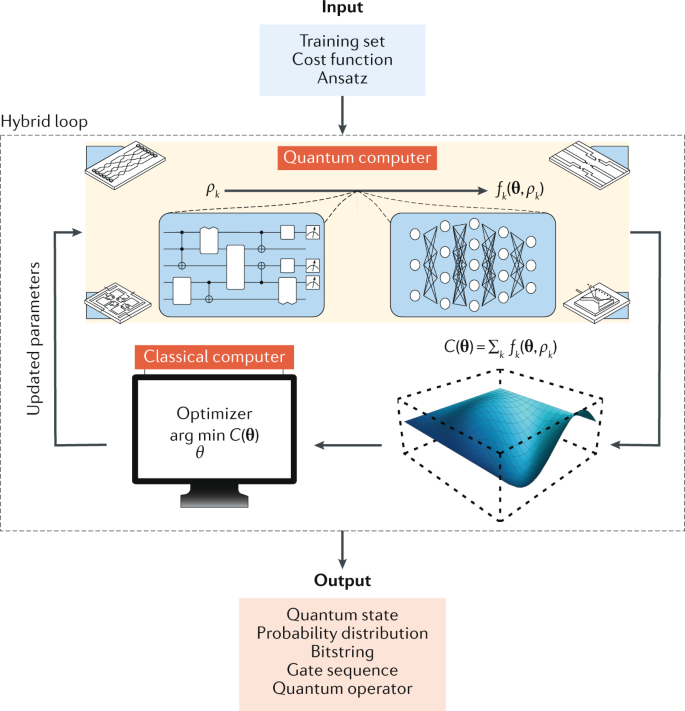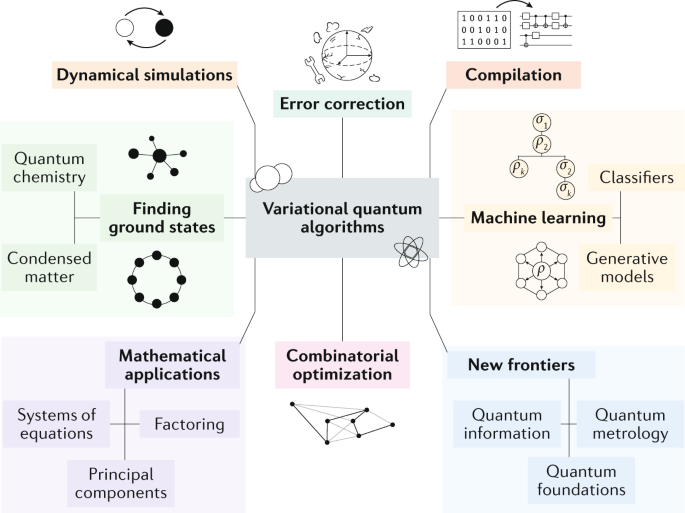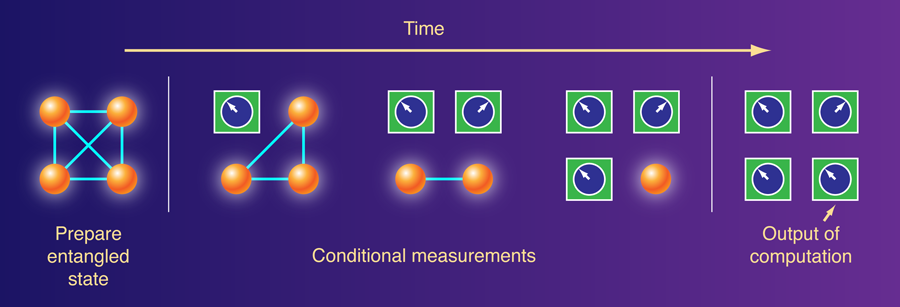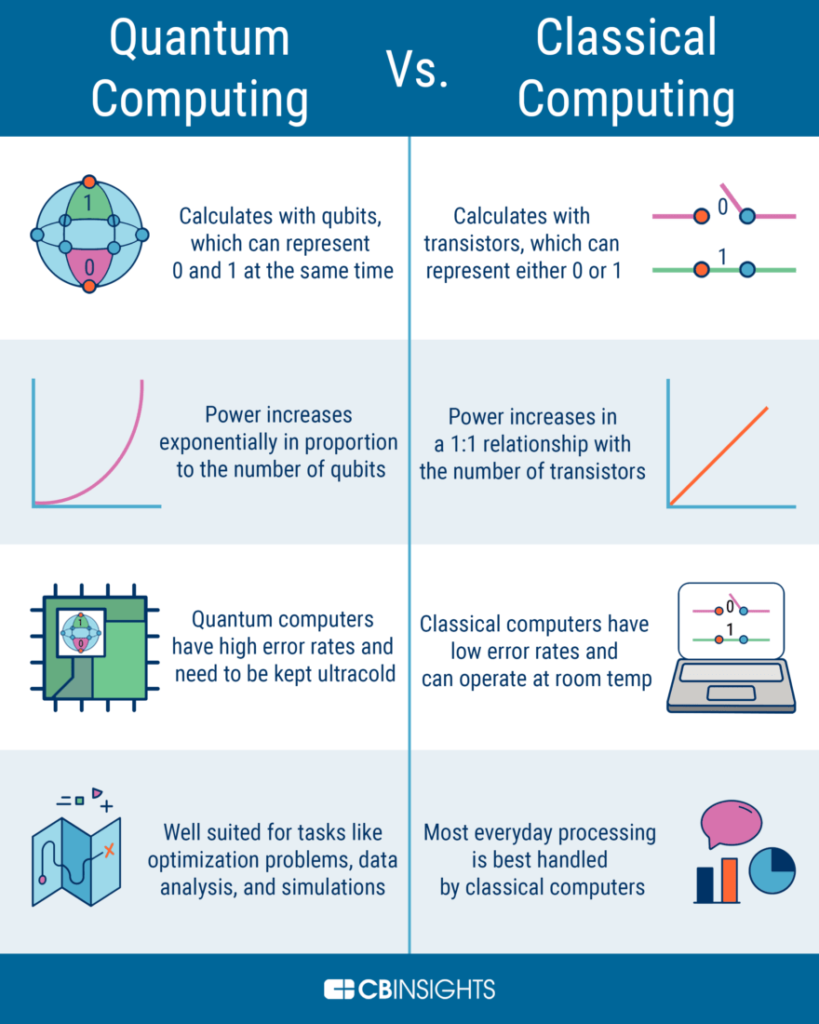Quantum computing is a revolutionary technology that promises to transform the way we solve complex problems in fields like cryptography, drug design, and optimization. At the heart of quantum computing is the concept of quantum algorithms – a set of instructions that tell a quantum computer how to solve a specific problem. But how do these algorithms work, and what makes them so powerful compared to classical algorithms?
To understand quantum algorithms, we need to first understand the basic principles of quantum mechanics. Unlike classical computers that use binary digits or bits (0s and 1s) to store and manipulate information, quantum computers use quantum bits or qubits. Qubits can exist in multiple states at once, thanks to the principle of superposition, which allows them to perform multiple computations simultaneously. This property of qubits forms the basis of quantum algorithms and is what makes them so efficient at solving certain problems that would take a classical computer an impractical amount of time. In this article, we will explore the inner workings of quantum algorithms, their applications, and their potential to revolutionize computing as we know it.

Quantum Algorithms: Explained
Quantum algorithms are the building blocks of quantum computing, which is based on principles of quantum physics. By harnessing the power of quantum mechanics, these algorithms have the potential to revolutionize the way information is processed. In this article, we’ll explore how quantum algorithms work and the implications of their use.
What is a Quantum Algorithm?
A quantum algorithm is an algorithm that utilizes principles of quantum mechanics to solve a problem. This means the algorithm will take advantage of the unique properties of quantum systems, such as entanglement and superposition, to achieve a desired result. For example, a quantum algorithm may be used to solve a complex mathematical problem that would be impossible to solve with traditional computers.
Quantum algorithms are powerful because they can solve problems that are intractable for classical computers. For example, quantum algorithms can be used to find the prime factors of large numbers, which is important for cryptography. They can also be used to solve optimization problems, such as finding the shortest path between two points, or to simulate physical systems, such as molecules, in a way that is not possible with classical computers.
How Do Quantum Algorithms Work?
Quantum algorithms work by taking advantage of the principles of quantum mechanics to solve problems. This means that the algorithm will use quantum bits (qubits) instead of classical bits to represent data and perform operations. Qubits can exist in a superposition of states, which means they can represent multiple values at the same time. This allows quantum algorithms to process and analyze data much faster than traditional computers.
Quantum algorithms work by manipulating the state of qubits to solve a problem. This is done by using quantum gates, which are the building blocks of quantum algorithms. These gates are used to manipulate the state of the qubits in order to achieve the desired result. For example, a quantum algorithm may use the Hadamard gate to put the qubits into a superposition of states, which can then be used to solve a problem.
The Benefits of Quantum Algorithms
Quantum algorithms have a number of advantages over classical algorithms. For one, they can solve problems that would be impossible for classical computers. This means that they can be used to solve complex mathematical problems that would take traditional computers an impossibly long time to solve. Additionally, quantum algorithms are able to process large amounts of data in a fraction of the time that it would take a classical computer.
Quantum algorithms also have the potential to revolutionize the fields of cryptography and machine learning. By taking advantage of the power of quantum mechanics, these algorithms can be used to create secure cryptographic systems that are impossible to break. They can also be used to develop more powerful machine learning algorithms that can detect patterns in large amounts of data much faster than traditional algorithms.
The Future of Quantum Algorithms
Quantum algorithms are still in their infancy, but they have the potential to revolutionize the way information is processed. As the technology continues to advance, quantum algorithms will become more powerful and more widely used. In the future, they may become the new standard for solving complex problems and analyzing large amounts of data.
The possibilities for quantum algorithms are endless, and the potential applications are only beginning to be explored. As the technology continues to develop, more and more uses for quantum algorithms will be discovered, and they may eventually become an essential part of our everyday lives.
Frequently Asked Questions about How Quantum Algorithms Work
Here are some of the most common questions about quantum algorithms and how they work. Read on for answers to help you understand quantum computing better.
What is a quantum algorithm?
A quantum algorithm is a procedure that uses quantum mechanical principles to solve a problem. It combines quantum mechanics and computer science to achieve a desired result. Quantum algorithms are used to process large amounts of data in a much faster way than traditional algorithms. They also have the potential to solve complex problems that are too difficult to solve with traditional algorithms.
Quantum algorithms are based on the principles of superposition, entanglement, and interference. Superposition is the ability of a quantum system to exist in multiple states at once. Entanglement is a phenomenon where particles interact with each other, even when they are separated by a large distance. Interference is the ability of a quantum system to interfere with itself, resulting in a different outcome than that of a classical system.
How do quantum algorithms work?
Quantum algorithms work by using a combination of quantum mechanics and computer science to solve complex problems. Quantum algorithms use the principles of superposition, entanglement, and interference to process information in a much faster way than traditional algorithms. For example, quantum algorithms can solve difficult optimization problems in much less time than classical algorithms.
The key to quantum algorithms is the ability to manipulate quantum objects such as qubits. A qubit is a quantum bit, or a unit of information that can exist in multiple states at the same time. This allows a quantum algorithm to process multiple pieces of information at once, resulting in a much faster solution than a classical algorithm.
What are the advantages of quantum algorithms?
There are several advantages of quantum algorithms over classical algorithms. They can process large amounts of data in a much faster way than traditional algorithms. They also have the potential to solve complex problems that are too difficult to solve with traditional algorithms. Additionally, quantum algorithms are more secure than classical algorithms. This is because a quantum algorithm is impossible to reverse-engineer, making it much more difficult to hack.
Finally, quantum algorithms are more energy efficient than traditional algorithms. This is because quantum algorithms do not require as much energy to process information, resulting in a more efficient system.
What are the disadvantages of quantum algorithms?
The main disadvantages of quantum algorithms are the cost and complexity. Quantum algorithms require specialized hardware and software, which can be expensive. Additionally, quantum algorithms are very complex, making them difficult to implement. Finally, quantum algorithms are still in the early stages of development, so there are still many unknowns with regards to their potential applications.
What are some examples of quantum algorithms?
Some examples of quantum algorithms include Shor’s algorithm, Grover’s algorithm, and the Quantum Fourier Transform. Shor’s algorithm is used to factorize large numbers, while Grover’s algorithm is used to search large databases. The Quantum Fourier Transform is used to analyze signals and is used in quantum computing research.
These algorithms are just a few examples of the potential of quantum computing. As quantum computing continues to develop, more complex algorithms will be developed that could revolutionize the way we process data and solve complex problems.

Quantum Algorithms
In conclusion, quantum algorithms are a promising avenue for solving complex problems that classical computers struggle with. By exploiting the principles of quantum mechanics, quantum computers can perform calculations much faster than their classical counterparts. The key to this speedup lies in the concept of superposition, where a qubit can represent multiple states simultaneously, and entanglement, where two or more qubits can be linked together in a way that their states become correlated.
While quantum algorithms are still in their infancy, researchers are exploring their potential in various areas such as cryptography, chemistry, and optimization. As quantum computers become more powerful and accessible, the potential for quantum algorithms to revolutionize the world of computing is becoming increasingly more real. As we continue to unravel the mysteries of quantum mechanics, we can expect to see even more exciting developments in the field of quantum algorithms in the years to come.



